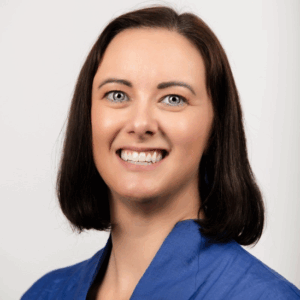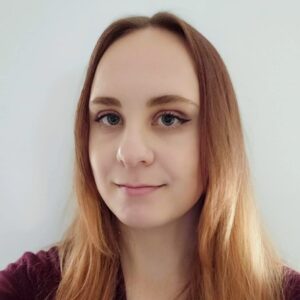At the EY organisation, we understand that embracing a variety of perspectives and experiences is essential to our success. One of the ways we champion these values is through our commitment to neuroinclusion.
Neurodiversity, a term coined by sociologist Judy Singer in the late 1990s, refers to the natural variations in the human brain and cognition. This concept led to a paradigm shift, recognising that these differences are valuable aspects of human diversity. By fostering an environment where neurodivergent individuals can belong and thrive, we tap into different perspectives and strengths that improve our workplace and drive innovation.
A catalyst for change
In 2021, we collaborated with the University of Sydney’s Brain and Mind Centre, contributing to first of its kind Australian research, while providing employment and career development opportunities for individuals from a significantly underrepresented cohort in the employment community.
The Switched On Program was a 12-week supported workplace program for Autistic adults. Through this experience, we learned a lot about what neurodivergent individuals, EY leaders, and the broader EY organisation needs to create a neuro-inclusive and neuro-affirming workplace.
Fostering Neuro-inclusion
Motivated by insights from the Switched On Program, our goal was to spark meaningful conversations about neurodiversity in the workplace and foster belonging and inclusion for neurodivergent EY people. This led to the creation of Neurodiversity November – a month-long (now global) celebration of neurodiversity across the EY organisation. It also marked the emergence of the Neurodiversity Community Connect Group (NCCG) for EY people.
Since 2021, we’ve been able to collaborate and co-design with members of this community group on the creation of resources and toolkits, storytelling, and the development of our first Neurodiversity Strategy, launched in 2023. We are fortunate to have a former Switched On program participant actively contributing to the implementation of this strategy on an ongoing basis.
“My past work experiences were hindered by a lack of neuro-inclusivity and challenges with traditional recruitment processes. The EY Switched On program provided a welcome alternative, offering a tailored recruitment pathway for neurodivergent individuals like myself. Since joining EY, I have been fortunate to be part of actively inclusive teams, which has led me to my current role where I can pursue my passion for neuro-inclusion and actively contribute to neuro-inclusive initiatives.” – Kasmira Geering
In 2022, our AI and Data team collaborated with Specialisterne, an international not-for-profit social enterprise offering neurodivergent individuals career opportunities in professional services, bypassing traditional hiring barriers. The program saw six interns join the team, with four becoming permanent members. Following its success, we have learned more and expanded on the program to continue this transformative work.
During Autism Acceptance Month in 2023, we launched our Autism Workplace Champions (AWC) initiative. This community of trained AWCs brings a diverse range of lived experience – Autistic individuals, parents/carers and allies – who provide support and help foster psychological safety.
“Being an Autism Workplace Champion allows me to make a tangible difference in the lives of our colleagues and contribute to a more inclusive and supportive work environment” – EY AWC, May 2025.
In 2023, we redesigned our workplace adjustment (WPA) process to provide a centralised, person-centred approach. Our goal is to facilitate people living and working with disability and neurodivergence to access the support they need to thrive, and to help enable equitable opportunities and experiences. We tailor each adjustment to the individual and offer an accessibility passport to support confidentiality and empower our people to facilitate conversations when the time is right for them. Since implementation, over 22% of our WPAs have supported individuals who have disclosed their neurodivergent identity.
“The workplace adjustment program has greatly helped me in setting up my ideal ways of working, the process was simple, and I felt seen and heard throughout. Now I have everything set up properly it has made a huge difference to my working day” – neurodivergent WPA request 2024.
To better understand the experiences of our EY people, we conducted our inaugural Workplace Accessibility and Inclusion (WAI) survey in May 2024 across the Oceania region. The survey revealed that 7.2% identify as a person with disability, 7.6% as neurodivergent, and 28% manage a chronic or long-term health condition. These insights have informed the design and commitments in our third Accessibility and Inclusion Plan (AIP).
Reflections
“A former Switched On Program participant once said to me, ‘I found a piece of myself at the EY organisation’. I didn’t know at the time that I would come to feel the same way. Without the work opportunities the EY organisation has afforded me, I may never have taken the step to gaining a diagnosis and my career certainly wouldn’t have evolved the way that it has, enabling me to fuel my passion and purpose.
“I’m proud of our progress in making the EY organisation a more inclusive and accessible workplace where neurodivergent as well as neurotypical people can thrive. There is much more to be done, but I’m excited for what’s to come.
“Everyone can help shape neuro-inclusion; through inclusive actions and communication, building your inclusive leadership capability and challenging biases. Maybe you too will be shaped by a more neuro-inclusive workplace and world.” – Laura Grant
“Being part of supportive and inclusive teams, while also engaging in neuro-inclusion initiatives, has empowered me to grow and speak openly about my neurotype. I recognise that I have a level of privilege that not every neurodivergent person possesses, and I strive to use this privilege to advocate for neuro-inclusion, aiming to create a workplace where everyone can feel safe to be their authentic selves.
“These initiatives are just the beginning. Together, we can create a culture of acceptance and understanding, where neurodiversity is celebrated and embraced. Getting started on the journey toward neuro-inclusion is not difficult; there are many small, no-cost actions that can be taken immediately to advance neuroinclusive workplaces. Simple steps, such as learning about individuals’ preferred communication and working styles and responding to them, can make a significant difference.” – Kasmira Geering
 Laura Grant (she/her) Part of the EY Oceania Diversity, Equity & Inclusiveness (DE&I) team, Laura leads DE&I Talent Attraction & Acquisition and has an internal focus on accessibility and disability inclusion, having led the development of EY Oceania’s first (and award-winning) autism employment program, an innovative Neuro-Inclusion Strategy, and the redesign of a new person-centred Workplace Adjustments Process.
Laura Grant (she/her) Part of the EY Oceania Diversity, Equity & Inclusiveness (DE&I) team, Laura leads DE&I Talent Attraction & Acquisition and has an internal focus on accessibility and disability inclusion, having led the development of EY Oceania’s first (and award-winning) autism employment program, an innovative Neuro-Inclusion Strategy, and the redesign of a new person-centred Workplace Adjustments Process.
Laura draws from her lived experience with chronic health issues and a late diagnosis of ADHD. She is the Melbourne geo lead for the Ability Network, a trained Autism Workplace Champion and an IECL Level One Certified Organisational Coach.
 Kasmira Geering (she/her) Kasmira is the Oceania Diversity, Equity, and Inclusion Advisor at EY Australia, where her unique perspective as an asexual and Autistic woman informs her approach to fostering an inclusive workplace. With a background in Human Resources, Kasmira is passionate about creating environments that support and help empower everyone to be their authentic selves. She is a trained Autism Workplace Champion and is the lead for the Ability Network’s closed neurodiversity community group.
Kasmira Geering (she/her) Kasmira is the Oceania Diversity, Equity, and Inclusion Advisor at EY Australia, where her unique perspective as an asexual and Autistic woman informs her approach to fostering an inclusive workplace. With a background in Human Resources, Kasmira is passionate about creating environments that support and help empower everyone to be their authentic selves. She is a trained Autism Workplace Champion and is the lead for the Ability Network’s closed neurodiversity community group.
She is also a member of the Clinic for Autism and Neurodevelopment (CAN) Research Community Consultation Committee, which allows her to pursue her passion for neuro-inclusion outside of the workplace.
Read more about EY’s efforts toward neuroinclusion in DCA’s case study, Championing Autism and Neurodiversity at Ernst and Young. DCA members can also find out more by watching the recording of DCA’s Case Study Conversation event, Autism & neurodiversity at EY.
Want to contribute to DCA’s Neurodiversity Data at Work project? We’ve partnered with Amaze to develop survey questions for Australian employers to better understand the neurodiversity of their workforce. By collecting this data, your feedback will inform our guide supporting employers to start measuring neuroinclusion and diversity to drive positive change in their organisations. Find out more.
DCA resources
- DCA’s Disability & Accessibility resource page
- The 10 Guiding Principles of Recruiting Neurodivergent Talent, Jim Mullen, CEO, Amaze (blog)
- DCA’s Submission to Draft National Autism Strategy
- Creating dignified access for everyone, Emma Henningsen, CXO at Australian Disability Network (blog)
- Building a culture of accessibility at (and with) Microsoft
- Disability Data at Work
- Neurodiversity Celebration Week: a framework for fostering neuroinclusive workplaces, Alexandra Lazarus-Priestley, Chief Change Officer at Amaze.
Additional resources
- Develop your Accessibility Action Plan, Australian Disability Network
- Autism Fast Facts: Employment, Amaze
- Do One Thing for Autism, Amaze
- Adjustments Toolkit, DARE UK
- Tips for Employers, Dear Dyslexic
- Resources for Employers, Neurodiversity Hub
- Establishing workplace adjustments: How I learned to advocate for my Autistic needs, Reframing Autism
- Learn more about neurodiversity at work Uptimize.
